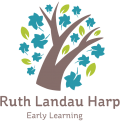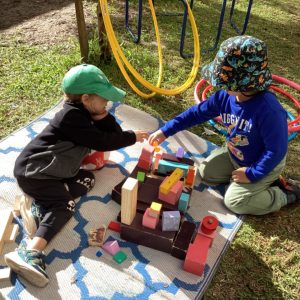At Ruth Landau Harp we offer a 4 year old Kindergarten program led by a fully qualified and registered Early Years Teacher. Guided by the Early Years Learning Framework, elements of the West Australian Kindergarten Curriculum and the centre’s own philosophy, visions and values, the kindy is a place of awe and wonder.
What we do
As certified and trained members of Little Scientists Australia, children are introduced to the benefits of enquiry based learning and have STEM woven into all aspects of their day.
The centre also has close links to both Coolbinia and Carmel primary, supporting community connections and building familiarity with a school environment.
As active members of the KIDDO program, priority is given to supporting children’s Fundamental Movement Skills, for a healthy and active lifestyle.


